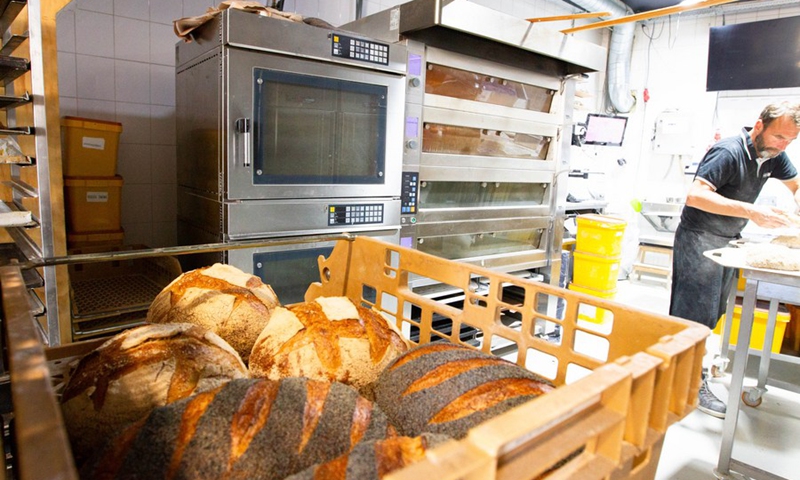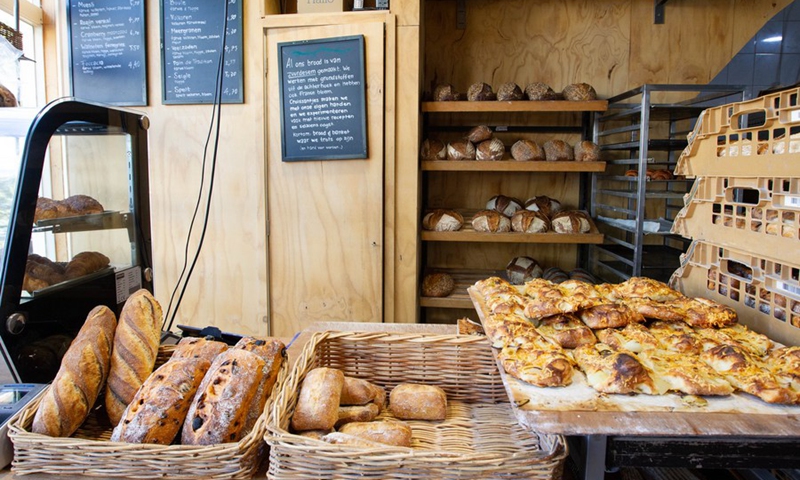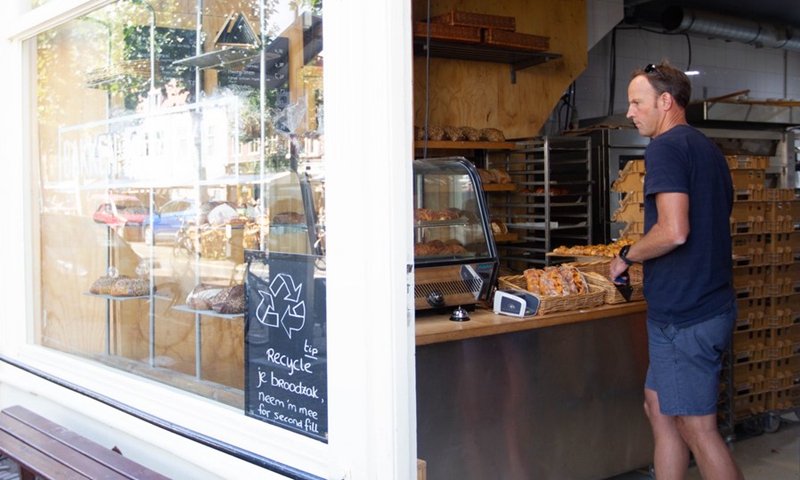
A baker works at a bakery in Haarlem, the Netherlands, on Sept. 7, 2022.(Photo: Xinhua)

Photo taken on Sept. 7, 2022 shows a bakery in Haarlem, the Netherlands.(Photo: Xinhua)

A customer shops at a bakery in Haarlem, the Netherlands, on Sept. 7, 2022.(Photo: Xinhua)
Numerous bakeries across the Netherlands have already been pushed to the brink of bankruptcy by the rising costs of energy, according to the Dutch Bread and Pastry Bakers Association (NBOV).
If the government does not intervene immediately, many bakers will have to close shop early next year because their energy bills have already increased up to tenfold compared to two years ago.
"Around 40 percent to 60 percent of all bakers will no longer be able to pay their energy bills on January 1," NBOV Chairman Arend Kisteman told local media. "There are about 3,200 bakers in the country. This means more than 1,500 bakers will disappear."
Asked if his bakery will be able to survive, Kisteman, a baker in the northeastern city of Zwolle, replied: "No, that will be the end of the story for me too."
Like many Dutch households, bakery companies in increasing numbers are seeing their fixed, cheaper energy contracts being converted into expensive variable contracts. "Such an energy contract is now eight to 10 times more expensive than last year," Kisteman said.
To cut costs, more and more bakeries stay open only four or five days a week rather than the usual six days, he said.
Inflation in the country rose to a new record high of 12 percent in August from 10.3 percent in July, the Statistics Netherlands (CBS) said on Tuesday. Energy prices, which soared 151 percent, remained the main driver behind this growth, but the rising costs of groceries and housing also emerged as key contributors.
The Dutch Bakery Association (NVB) is also concerned. It expects to see production problems within a few months at some of its approximately 40 medium-sized and industrial bakers, which mainly supply supermarkets in the country.
NVB Director Wim Kannegieter said it is a matter of months before some industrial bakers must stop production.
"That is already happening at some artisan bakers. The industrial bakers make bread for supermarkets, which is 90 percent of the market. They won't last for months," Kannegieter said.
The NBOV has started a campaign with advertisements in the national newspaper Algemeen Dagblad to demand action from the government. "Energy costs have to decline," one of the ads says. "The artisan bakers cannot bear these costs. We call on The Hague to come up with a solution."
The NBOV proposes the establishment of a price ceiling for energy or the lowering of the tax on electricity and gas as possible solutions.
